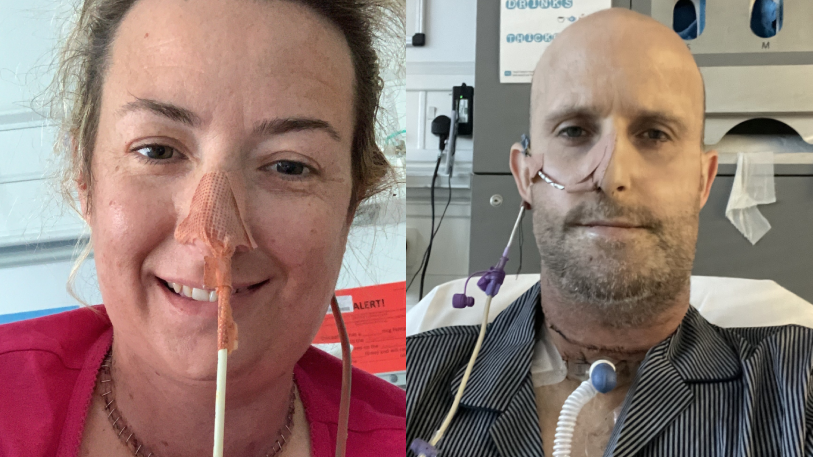Cancer and ivermectin: What people with cancer need to know
Leading oncologist and Macmillan Cancer Support’s Chief Medical Officer talks on the misleading cancer claims around anti-parasitic drug, ivermectin.
Can ivermectin treat cancer?
I have been an oncologist long enough to see many fads come and go in the world of complementary and alternative medicine – from claims about shark cartilage to apricot kernels. A brief dip into some corners of social media right now will show you that there’s lots of talk about a drug called ivermectin. We’re also seeing a growing number of people asking questions about the drug on Macmillan’s Online Community, with dozens of mentions over the last year.
Now, I want to be clear from the outset that ivermectin is an effective drug in the treatment of parasitic infections. However, there is currently zero real-world clinical evidence that it might be helpful in the treatment of cancer. And yet, with just a few clicks on X and Instagram, I was astounded by the sheer number of people professing ivermectin’s benefits for cancer treatment and even trying to find ways to buy it.
What is ivermectin?
Ivermectin is a drug that was used initially in veterinary medicine and has been licensed for human use for the treatment of parasitic infections, such as river blindness and scabies, since 1978. Like many anti-infective drugs, resistance can develop when it is used widely. This sent scientists back to do further research which led to several interesting discoveries about the drug that make it plausible that it could have anti-cancer properties.
Research about ivermectin and cancer
A number of research studies such as those featured in a review on ScienceDirect(1) suggest that broadly, ivermectin might help induce death in cancer cells and affect certain signalling pathways in cancer cells, by disrupting their internal communication systems. However, even the scientists who have been most interested in this research have suggested that any potential positive effect is only likely to be seen if the drug is combined with conventional therapies, rather than as substitute for standard treatments.
There is nothing bad about revisiting old drugs that might be capable of new tricks, and the concept of ‘repurposing’ medications is itself an old idea. One recent example is the use of bone-strengthening bisphosphonate drugs, which have been shown to have anti-cancer activity and are now used regularly in breast cancer. The most important part of the process however is the testing, and that is where (so far) ivermectin falls short.
In vivo versus in vitro
Over the last decade there have been multiple studies which show that ivermectin and drugs like it have some effect on cancer cells in the laboratory. This is not very surprising. In fact, there are thousands of substances which can be toxic to cancer cells grown in the glass (in vitro) of a laboratory test tube. However, taking that evidence and showing that it can be effective in ‘life’ (in vivo) is a far more challenging ask. High doses that are possible in vitro may be almost impossible to reach in vivo.
When researchers found that the substance curcumin (an extract of the spice turmeric) had in vitro anti-cancer activity(2), it was reported in the media that eating curry might have cancer benefits. However, in reality, the truth is that the dosages used were thousands of times higher than the dose you might find in your favourite curry. This trap of extrapolating pre-clinical lab data and assuming it translates to clinical benefit is repeated over and over.
Clinical research in people with cancer
Clinical research - testing ivermectin in people with cancer - has not yet happened, with one small exception. At the American Society of Clinical Oncology (ASCO) research conference this year we heard data from a very small study(3) where ivermectin had been given in combination with immunotherapy for people with metastatic triple negative breast cancer. In eight patients tested, only one had seen any cancer shrinkage, and this is with ivermectin being given alongside proven therapy. This tiny study is currently the only clinical study listed on the world’s leading database of clinical trials, the ClinicalTrials.gov website, using ivermectin in any cancer type worldwide(4).
The online conversation around ivermectin
I am interested in the ‘origin story’ of these cancer claims. How and why are people suddenly so interested? Some of this interest may have become magnified by the power of celebrity. Earlier this year on the Joe Rogan Experience podcast, American film star Mel Gibson spoke of three friends who had stage IV cancer who do not have any cancer “right now at all.” According to Gibson, those three friends all took the anti-parasitic drugs ivermectin and fenbendazole. The podcast of Gibson making these claims has been watched 11 million times. It seems Gibson’s statement has lit a rocket underneath interest in ivermectin and yet it would be hard to imagine any statement from a medical professional ever getting such traction.
Macmillan’s commitment to expert information about cancer
In a growing world of misinformation, at Macmillan Cancer Support we are committed to providing independent, expert, up-to-date information for everyone affected by cancer. Our information is based on the latest evidence and is reviewed every 3 years. It is written in plain English and we try to make it accessible and relevant to the widest range of people.
We are proud to be members of the Patient Information Forum and to have been awarded the Patient Information Forum (PIF) TICK quality mark, which shows that we have followed robust production processes and met PIF’s 10 criteria for trustworthy health information.
You can read more about how we produce our information.
Support for people living with cancer
- Call for free on 0808 808 00 00.
- Chat to our specialists online.
References
- Review: Ivermectin, a potential anticancer drug derived from an antiparasitic drug
- National Library of Medicine: The Role of Curcumin in Cancer Treatment
- American Society of Clinical Oncology: A phase I/II study evaluating the safety and efficacy of ivermectin in combination with balstilimab in patients with metastatic triple negative breast cancer.
- National Library of Medicine: Clinical trials ivermectin and cancer.
Read more
-
News and stories 10 Sep 2025In this blog, Gemma reflects on the impact Macmillan made last year ahead of the launch of Macmillan Cancer Support's Annual Report for 2024.
-
News and stories 03 Sep 2025Anthony Cunliffe, National Lead Medical Adviser at Macmillan, explains why more needs to be done to make cancer care fair.
-
News and stories 10 Jul 2025The Prime Minister launched the government’s long-awaited 10 Year Health Plan, outlining a vision to “bring the NHS closer to home.”






